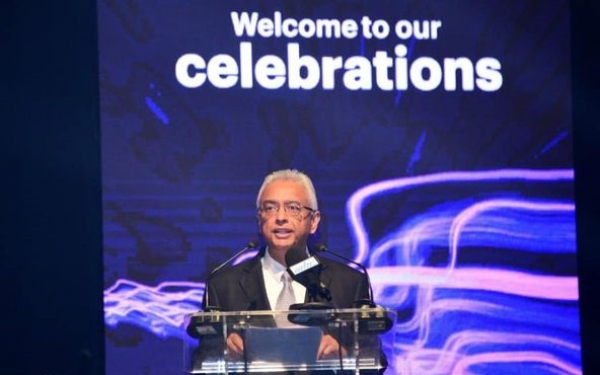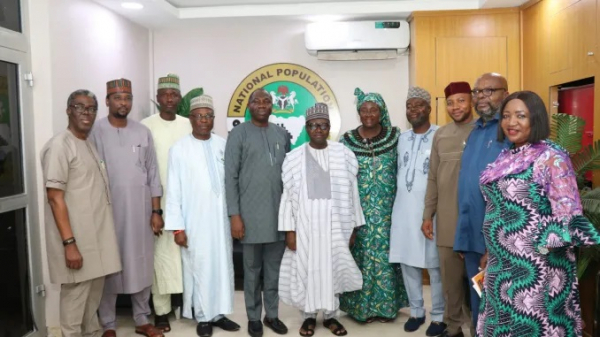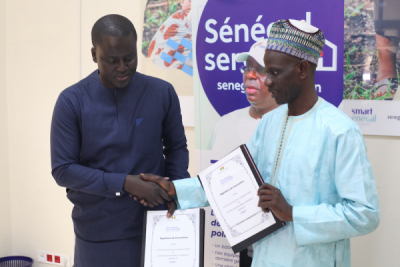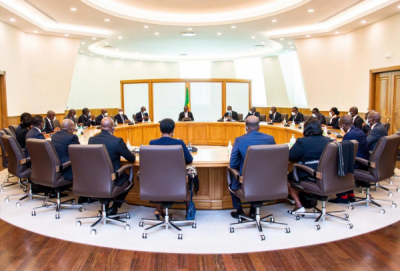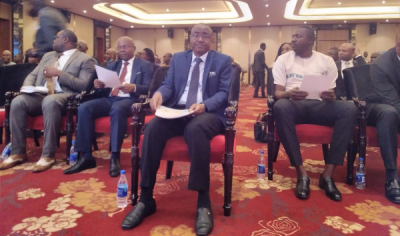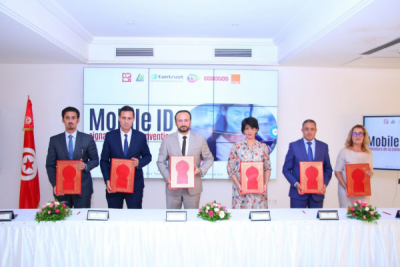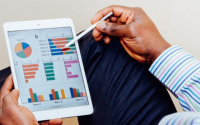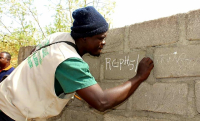
Public Management (483)
African countries are taking measures to avoid being left out in the current wave of digital transformation. Apart from internet connectivity, they are also addressing employability for socioeconomic growth.
To attract more investors, Mauritius intends to improve employability in its IT sector. In doing so, the country aims to have 2,000 additional jobs created in its IT sector in the next two years. The figure was presented by its Prime Minister, Pravind Jugnauth (photo), last Thursday (July 7), during the official ceremony organized by Accenture Mauritius to celebrate its 20-year presence in the country.
“We are currently working to attract other tech giants to Mauritius. Based on the pipeline of projects facilitated by the Economic Development Board, in the next two years, 2,000 new jobs will hopefully be created in the IT sector. They include notably programming, claims processing, customer support, cybersecurity, and data analysis,” the government official said.
To improve employability in the IT sector, Mauritius plans to accelerate skills development by creating a Digital Industry Academy supported by Landscope Mauritius. A cohort of 1,000 people is scheduled to start artificial intelligence, cybersecurity, and cloud computing training this month.
According to Pravind Jugnauth, with a 6.5% growth, the country’s IT sector is the only one that has not been affected by the global health crisis. In the sector, 30,000 people are already working for 900 firms, while 3,000 new jobs were created between 2020 and 2021, he added.
Samira Njoya
Thanks to information and communication technologies, African countries can efficiently manage their civil registration system, therefore improving population data and statistics.
The Nigeria Digital Identification for Development Project (ID4D) will cooperate with the National Population Commission (NPC) to digitize the civil registration system. The information was disclosed by ID4D coordinator Musa Odole Solomon, during a friendly visit to NPCs executive chairman, Alhaji Isa Kwarra, last Thursday (July 7).
At the end of the visit, Musa Odole Solomon expressed the ID4D project’s determination “to invest in the Civil Registry system to reinforce the foundational ID ecosystem by delivering National Identity Numbers at birth, as part of the birth registration process through links with the digitized Civil Register.”
According to the coordinator, “the project is designed, following an Ecosystem model and not limited to any single organization. It, therefore, involves different agencies of government, the private sector, and civil society. The project had since identified the National Population Commission as an important ecosystem partner.”
In 2020, the ID4D project secured US$430 million from the World Bank, the European Investment Bank, and the French Development Agency. It aims to develop an efficient identification system that will enable access to essential services. Its ambition is to increase the number of biometric ID cards issued from 40 million to 148 million by 2024.
According to Alhaji Isa Kwarra, the cooperation between ID4D and NPC will be useful in several areas. “We are trying to modernize our civil registration systems. We register births and deaths. We are supposed to be registering marriages and divorces, etc. Modernizing and digitizing our processes is very important and that is where you come in. We are willing to partner with you 100 percent. We are also involved in national identity coverage. I assure you of our total support and collaboration,” he said.
Samira Njoya
In Africa, citizen identification is a real challenge. According to estimates presented by the World Bank in 2018, 45% (about 500 million people) of Sub-Saharan African residents were unable to prove their identity in 2018.
State IT agency Sénégal Numérique SA signed, Thursday, July 7, a partnership agreement with the mayors of 19 of Dakar’s municipalities. Thanks to that agreement, the municipalities will be connected to the IT agency’s digital platform Senegal Services, facilitating citizens’ access to administrative documents.
“Thanks to the partnership, the civil status records issued by municipalities in Dakar will be accessible through the Sénégal Services platform and the state’s one-stop-shop portal. It will allow all those residing in the country to easily access those records,” explains Cheikh Bakhoum (photo, left), director-general of Sénégal Numérique.
Senegal and the European Union recently launched Nekkal, a program aimed at interconnecting civil registration centers and digitalizing civil status records. “We have already launched the digitization process. We will digitize 15 million civil status records, create an index of 30 million records and build 34 centers in the 14 regions. We will also train 3,000 civil registration officers and managers. Above all, we will train 600 archivists since we noticed that archiving is not factored in the management of civil registration,” indicated registrar general Aliou Ousmane Sall at the time.
The digitization of civil registration services will improve the traceability and reliability of birth data. So far, only 62% of children aged 0 to 5 years are registered at birth in Senegal. Those who are registered usually face several challenges including double matriculation and file destruction.
Samira Njoya
One of the important reforms implemented by African countries in recent years is the introduction of biometric ID documents. The new system can help authenticate holders based on a set of biometric information.
Benin will officially stop the issuance of non-biometric ID cards. The decision was decreed during the ministerial council held in Cotonou, last July 6. The country, through the National Agency for the Identification of Persons (ANIP), will replace them with biometric cards per the decree n° 2020-396 of July 29, 2020.
According to a release issued after the ministerial council, the ANIP has taken, since 2020, appropriate measures to efficiently assume its tasks. Thanks to those measures, national ID cards’ processing time is reduced to one week, we learn.
The satisfying results achieved by the agency prompted the government to “stop the issuance of non-biometric cards, which are no longer compliant with international standards,” the release reads.
The new identity card is a visa-card-like document with an integrated microchip that stores biometric data like fingerprints, names, surnames, etc. Presented as a tamperproof document, it includes a QR Code (containing an electronic signature) and a holographic code making it hard to falsify the identification information.
Samira Njoya
In Africa, the land management sector is confronted with several issues, from cumbersome administrative procedures to illegal documents. The Guinean government has decided to rely on technology for an efficient solution to problems affecting the efficiency of the national land leasing process.
The Guinean Ministry of Urban Affairs rolled out, Wednesday (June 29), habitatguinee.app, a land management platform. By rolling out the platform, the ministry wants to address the problems identified in the land management sector and help people (land lease applicants notably) easily complete administrative procedures.
According to Minister of Urban Affairs Ousmane Gaoual Diallo, the aim of the platform “is clearly to promote efficiency and secure the collection of government revenues by mitigating potential risks.”
During the roll-out ceremony, Prime Minister Mohamed Béavogui (photo, center) explained that a valid lease is required from citizens and investors alike for their construction or investment projects.
“The platform connects all the ministerial departments and institutions involved in the lease contract process in Guinea. It dematerializes the lease granting process and centralizes the already granted leases on a single platform,” explained Souleymane Diallo, a representative of Global High Tech, the Ministry of Urban Affairs’ partner in the development of habitatguinee.app.
Adoni Conrad Quenum
As digital transformation is increasing in Africa, governments are intensifying public service digitization. It is, therefore, necessary to guarantee digital trust. Hence digital identification measures are being taken by some countries.
The Tunisian Ministry of ICT signed Friday (July 1), a partnership agreement with the National Agency for Electronic Certification and telecom operators for the implementation of "mobile ID," a mobile identity project. The project concerned will transform sim cards into identity tools by linking users’ national identity card numbers to their phone numbers.
"This new service will reinforce digital trust in Tunisia by giving citizens a new secured and simple tool that allows them access to all the digital services and also provides them a digital signature,” explained ICT Minister Nizar Ben Neji.
Under the partnership agreement, telecom operators will verify users’ identities and link their phone numbers with their ID card numbers. The National Agency for Electronic Certification will issue personal identification numbers for every identified citizen. It will also generate personal QR Codes, which citizens can use to sign administrative documents online. The long-term goal is to allow Tunisians to connect to the public administration platform, log in with their identification numbers, request administrative documents, and sign them if need be online.
Mobile ID was announced in February 2021, in the framework of the government’s digital transformation program. According to the Ministry of ICT, it will rid the public administration system of the certified signature and certified copy requirements. In its initial phase, it will facilitate Tunisians’ access to the 120 administrative services already digitized. Then, it will gradually be rolled out to include the whole public administration.
Samira Njoya
During the coronavirus pandemic, e-education proved its worth. Apart from its practical aspect, it easily allows access to greatly diversified content. Several African countries have thus decided to adopt this teaching mechanism.
In Cameroon, the Ministries of Secondary and Higher Education will mutualize their education system digitalization efforts. The will was formally expressed last Friday (June 24) during a meeting between Minister of Higher Education Jacques Fame Ndongo and Minister of Secondary Education Nalova Lyonga.
“The two government officials noted the initiatives taken by the government to digitize education through notably the Ministry of Higher Education’s Inter-university network’s supervisory center and the Ministry of Secondary Education’s distance learning center. They then decided to mutualize the said efforts to achieve economies of scale and attain the desired efficiency,” indicates a release published after the meeting.
The two ministries will mutualize their infrastructures and digital resources, notably the Ministry of Higher Education’s digital university centers and the Ministry of Secondary Education’s decentralized institutions. They will also build secondary education teachers’ digital pedagogy skills thanks to the IT department of Cameroon’s teacher training schools. They also decided to regularly assess the collaboration initiated.
The digitalization of Cameroon’s secondary and higher education systems is part of the education system modernization program contained in the 2030 National Development Strategy. It aims to create learning environments that allow teachers to easily share their knowledge and learners to swiftly pick up knowledge.
Ruben Tchounyabé
This year, DR Congo has accelerated the modernization of its public administration. This project wants to improve transparency and management in state firms.
DR Congo recently unveiled its plan for the digitization of 29 state firms. The plan was presented by State Minister Adele Kayinda during the ministerial council held last Friday (June 24). According to the government official, the digitalization project aims to ensure the traceability of the selected firms’ operations and facilitate transparency.
The project will be funded thanks to private capital already negotiated, we learn. It will be implemented in collaboration with the Ministry of Digital Affairs. For Digital Minister Désiré Cashmir Eberande Kolongele, in the framework of the digitalization project, a shared services platform will be acquired, local tech teams trained and the capacities of firms’ staff built.
“The digitalization of state firms will not only improve management and performance for transparent profitability but, it will also reduce physical records by digitizing hard copies,” the government estimates.
The plan unveiled last Friday is the result of an instruction given by President Félix Tshisekedi during the March 18, 2022, Ministerial council. During the council, he pointed out the importance of digitalization and tasked Adele Kayinda to make sure every firm concerned urgently elaborates its digitalization roadmap. The project is in line with the state firms’ modernization program presented by the government in 2019.
Ruben Tchounyabe
Nigeria is currently working on a program to train 1 million developers in the coming 18 months, Communications Minister Isa Ali Pantami (photo) announces.
The government official made the revelation during a virtual event on the “Role of Software Testing in Nigeria’s Digital Economy.” He stressed the need to license more software developers given the increasingly major role being played by software in all aspects of human life. He also pointed at the need for a secure system to make sure the market is not ridden with vulnerable software.
“We want to see how we can license some of you to provide these services, that means if I develop software, I need to come to a certified tester to make sure I meet the standard quality assurance; all the basic bug-free, and the vulnerability assessment before I am able to sell that software,” he said.
The training program will be implemented by the National Information Technology Development Agency (NITDA) and target both professionals and inexperienced actors. During the virtual event, Isa Ali also called digital actors to support the program.
Vanessa Ngono Atangana
In the past, the processing of census data collected was strenuous and long. With digitalization, the country will improve processing time as well as the accuracy of the data collected.
Mali launched, Wednesday (June 15), its fifth population census. Dubbed RGPH5, this census will be the first to go all-digital in the country. Data will be collected and processed on tablet computers.
According to Dr. Arouna Sougané, director-general of the national institute for statistics (INSTAT), digitalization will improve the quality of the data collected and processing time. Indeed, initial results are expected for the fourth quarter of this year. He explains that the census aims to elaborate a database detailing the population size, its structure, and geographical distribution. The database will improve the efficiency of development actions as well as give an idea of the progress recorded in the implementation of development programs.
To organize the RGPH5, Mali raised XOF25 billion (US$40.2 million) thanks to support from the World Bank and other partners. It also deployed 26,327 census officials, 4,504 team supervisors, and 866 tech supports.
Per the provisions of the United Nations Statistical Commission, a population census should be carried out every ten years or so. Mali’s first population census was carried out in 1976, the second one was in 1987, and the last two were in 1998 and 2009.
Ruben Tchounyabé
More...
Four years ago, investors’ attraction to the African insurtech segment was low. In 2021, that interest rose significantly with actors keeping a watchful eye on it.
Starting from July 1, 2022, actors in the Moroccan insurance market can offer products and sign insurance contracts with buyers exclusively online. Last June 8, the Supervisory Authority of Insurance and Social Welfare (ACAPS) signed a decision outlining the regulatory requirements of the digital platforms to be set up by insurance actors to allow the online purchase of insurance contracts.
ACAPS issued the decision because the insurtech segment is steadily growing. It is getting more attractive because of its convenience, flexibility and the new offers developed. In Africa particularly, the number of start-ups investing in the segment is rising rapidly. In its report "2021 Africa Tech Venture Capital," Partech reveals that the Insurtech segment attracted US$36 million in funding in 2021. This is significant growth for a sector that was still in its infancy two years earlier.
On February 9, 2022, in Nigeria, the National Insurance Commission (NAICOM) partnered with FSD Africa to launch BimaLab, an accelerator program. BimaLab aims to drive digital innovation and ICT adoption in the insurance industry. The accelerator program will help drive digital innovation and expand the adoption of information and communication technologies in the insurance industry.
Muriel Edjo
The coronavirus pandemic stalled and even reversed economic growth in several African countries. The most affected were mostly those with the lowest e-governance readiness level. That weakness must be corrected given the political, climatic, and economic risks proliferating.
Burkina Faso should develop digital services to improve its resilience to crises, the World Bank advises. In its report titled “Resilience in Uncertain Times: Promoting Digital Services,” the institution argues that investing in dematerialized services, digital technology solutions, and the internet will be beneficial to the country.
In the public sector, the development of digital services (with the implementation of e-government projects) will help preserve service continuity and ensure efficiency, in the tax segment particularly. In its latest report on its e-government development index (EGDI), the International Telecommunications Union (ITU) reveals that Burkina Faso's readiness level is still below the West African and Sub-Saharan African average.
In its 2021 national accounts, Burkina Faso's National Institute of Statistics and Demography reveals that the 6.9 percent GDP growth recorded by the country that year (after 1.9 percent in 2020) was all thanks to the public administration component (+8.3 percent), which resumed an uptrend stalled by the coronavirus pandemic.
According to the World Bank, Burkina Faso’s private sector can boost productivity and inclusion, therefore creating new growth opportunities. In the agricultural sector -which plays a key role in food security- the introduction of digital services (weather, farming practices, crops, markets, etc. services) is likely to improve farmers' performance. It can do the same in the trade and finance sectors.
To effectively make the digital sector a tool for economic and social development, the Burkinabe government must improve internet access. In January 2022, its internet penetration rate was 27.3 percent, representing just 5.95 million residents covered out of 21.80 million overall population.
Muriel Edjo
Côte d’Ivoire’s 2016-2020 development plan helped the country achieve 5.9% yearly growth on average. With the new plan, the country wants to do better by capitalizing on the digital sector.
Côte d’Ivoire will build a national data center and develop a 7000-kilometer of fiber-optic network by 2025, Communications Minister Amadou Coulibaly announces. The investments, which will complement others planned in the framework of the national digital development strategy, will help develop the national economy.
They were presented on Wednesday, June 15, during a meeting held in Abidjan to present the 2021-2025 National Development Plan’s financing mechanism. At the meeting, Amadou Coulibaly explained that the data center and the fiber optic projects were key priorities for his ministry because of their importance for digital transformation, which Côte d’Ivoire wants to accelerate.
The data center will allow the centralization of public services (being dematerialized) in a secure location, rendering them more efficient. The fiber optic network will enable the government to offer access to affordable high-speed internet -an essential tool for access to dematerialized services and economic opportunities- for every household.
Côte d'Ivoire approved its 2021-2025 national development strategy during the ministerial council held on December 22, 2021. It focuses on seven key points including the development of infrastructure, services, and financial services, building skills, improving the business environment and the digital economy, enhancing innovation, cybersecurity, and digital trust.
According to the World Bank, the digital economy will fetch Côte d'Ivoire more than US$5.5 billion by 2025, and more than US$20 billion by 2050, if the government and the private sector strengthen investments in the five fundamental pillars of the digital economy: infrastructure, platforms, financial services, entrepreneurship, and skills.
Muriel Edjo
Ecommerce is booming in several African countries. So, most governments have introduced reforms and incentives to encourage the activity. To benefit from those incentives, some buyers indulge in fraudulent acts. Therefore, Morocco is introducing the tax to protect the local industry and secure more revenues.
Morocco will tax every good purchased online and shipped from abroad starting from July 1, 2022. The decision is decreed in ordinance n° 2-22-438 issued during the ministerial council carried out last Thursday, June 16. According to the decision, all the goods purchased via electronic platforms are now subjected to import duties no matter their value. Goods delivered before the law’s effective date will not be affected, the ordinance stresses.
The new ordinance amends article 190-E of decree n°2-77-862, which exempts some goods and parcels from import duty. Goods and parcels worth less than MAD2,000 (US198.65$) imported by individuals with ordinary residence in Morrocco and those worth less than MAD1,250 (about US$125) (except for alcoholic drinks and tobacco) sent to natural or legal persons domiciled in the country were included.
Article 190-E is amended because Morocco noticed that with the boom of e-commerce activity in the country, some users have developed fraudulent practices to benefit from the exemption. For instance, large goods exceeding the exemption limits are fractioned and sent to multiple persons even though they are destined for one individual or legal person.
Speaking during a press conference after the June 16 ministerial council, government spokesperson Mustapha Baitas explained that the new decisions are aimed at combating fraudulent practices. "The project aims to strengthen customs control procedures for parcels bought online and delivered from abroad,” he said.
For the spokesperson, those acts harm the Moroccan economy-local businesses particularly- and deprive the government of important resources. In 2021, he estimates, more than MAD1 billion worth of goods bypassed taxation using fraudulent schemes to benefit from the exemption provided by article 190-E. For the government official, that figure could rise to MAD2 billion this year.
Ruben Tchounyabe


